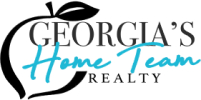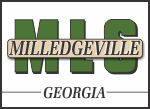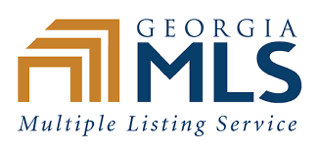Welcome to North Macon
You found the right website if you are searching for homes for sale in North Macon, GA. Our website has EVERY North Macon home for sale in Georgia listed with Central Georgia MLS, Milledgeville MLS-RETS, Georgia MLS and Mid Georgia MLS RETS.
Macon, officially Macon–Bibb County, is a consolidated city-county in the U.S. state of Georgia. It lies near the state’s geographic center, about 85 miles (137 km) southeast of Atlanta—hence the city’s nickname, “The Heart of Georgia”.
Located near the fall line of the Ocmulgee River, Macon had a 2020 population of 157,346. It is the principal city of the Macon Metropolitan Statistical Area, which had a population of 233,802 in 2020. Macon is also the largest city in the Macon–Warner Robins Combined Statistical Area (CSA), a larger trading area with an estimated 420,693 residents in 2017; the CSA abuts the Atlanta metropolitan area just to the north.
In a 2012 referendum, voters approved the consolidation of the governments of the City of Macon and Bibb County, and Macon became Georgia’s fourth-largest city (just after Augusta). The two governments officially merged on January 1, 2014.
Macon is served by three interstate highways: I-16 (connecting the city to Savannah and coastal Georgia), I-75 (connecting the city with Atlanta to the north and Valdosta to the south), and I-475 (a city bypass highway).
The city has several institutions of higher education, as well as numerous museums and tourism sites. The area is served by Middle Georgia Regional Airport and Herbert Smart Downtown Airport.
Living in North Macon
Macon was founded on the site of the Ocmulgee Old Fields, where the Creek Indians lived in the 18th century. Their predecessors, the Mississippian culture, built a powerful chiefdom (950–1100 AD) based on the practice of agriculture. The Mississippian culture constructed earthwork mounds for ceremonial, burial, and religious purposes. The areas along the rivers in the Southeast had been inhabited by indigenous peoples for 13,000 years before Europeans arrived.
Macon was developed at the site of Fort Benjamin Hawkins, built in 1809 at the fall line of the Ocmulgee River to protect the community and to establish a trading post with Native Americans. The fort was named in honor of Benjamin Hawkins, Superintendent of Indian Affairs for the Southeast territory south of the Ohio River for more than 20 years. He lived among the Creek and was married to a Creek woman. This was the most inland point of navigation on the river from the Low Country. President Thomas Jefferson forced the Creek to cede their lands east of the Ocmulgee River and ordered the fort built. (Archeological excavations in the 21st century found evidence of two separate fortifications.)
Fort Hawkins guarded the Lower Creek Pathway, an extensive and well-traveled American Indian network later improved by the United States as the Federal Road from Washington, D.C., to the ports of Mobile, Alabama and New Orleans, Louisiana. A gathering point of the Creek and U.S. cultures for trading, it was also a center of the state militia and federal troops. The fort served as a major military distribution point during the War of 1812 against Great Britain and also during the Creek War of 1813. Afterward, the fort was used as a trading post for several years and was garrisoned until 1821. It was decommissioned about 1828 and later burned to the ground. A replica of the southeast blockhouse was built in 1938 and still stands today on a hill in east Macon. Part of the fort site was occupied by the Fort Hawkins Grammar School. In the 21st century, archeological excavations have revealed more of the fort’s importance, and stimulated planning for additional reconstruction of this major historical site.
As many Europeans had already begun to move into the area, Fort Hawkins was renamed “Newtown.” After the organization of Bibb County in 1822, the city was chartered as the county seat in 1823 and officially named Macon. This was in honor of the North Carolina statesman Nathaniel Macon, because many of the early residents of Georgia hailed from North Carolina. The city planners envisioned “a city within a park” and created a city of spacious streets and parks. They designated 250 acres (1.0 km2) for Central City Park, and passed ordinances requiring residents to plant shade trees in their front yards.
The city thrived due to its location on the Ocmulgee River, which enabled shipping to markets. Cotton became the mainstay of Macon’s early economy, based on the enslaved labor of African Americans. Macon was in the Black Belt of Georgia, where cotton was the commodity crop. Cotton steamboats, stagecoaches, and later, in 1843, a railroad increased marketing opportunities and contributed to the economic prosperity of Macon. In 1836, the Georgia Conference of the Methodist Episcopal Church founded Wesleyan College in Macon. Wesleyan was the first college in the United States chartered to grant degrees to women. In 1855, a referendum was held to determine a capital city for Georgia. Macon came in last with 3,802 votes.
During the American Civil War, Macon served as the official arsenal of the Confederacy manufacturing percussion caps, friction primers, and pressed bullets. Camp Oglethorpe, in Macon, was used first as a prison for captured Union officers and enlisted men. Later it held officers only, up to 2,300 at one time. The camp was evacuated in 1864.
Macon City Hall, which served as the temporary state capitol in 1864, was converted to a hospital for wounded Confederate soldiers. The Union General William Tecumseh Sherman spared Macon on his march to the sea. His troops had sacked the nearby state capital of Milledgeville, and Maconites prepared for an attack. Sherman, however, passed by without entering Macon.
The Macon Telegraph wrote that, of the 23 companies which the city had furnished the Confederacy, only enough men survived and were fit for duty to fill five companies by the end of the war. The human toll was very high.
The city was taken by Union forces during Wilson’s Raid on April 20, 1865.
In the twentieth century, Macon grew into a prospering town in Middle Georgia. It began to serve as a transportation hub for the entire state. In 1895, the New York Times dubbed Macon “The Central City,” in reference to the city’s emergence as a hub for railroad transportation and textile factories. Terminal Station was built in 1916.
In 1994 Tropical Storm Alberto made landfall in Florida bringing 24 inches (61 cm) of rain, which resulted in major flooding in Georgia. Macon was one of the cities to suffer the worst flooding.
On May 11, 2008, an EF2 tornado touched down in nearby Lizella. The tornado then moved northeast to the southern shore of Lake Tobesofkee then continued into Macon and lifted near Dry Branch in Twiggs County. The tornado produced sporadic areas of major damage. Widespread straight-line wind damage was also produced along and south of the track of the tornado. The most significant damage was in Macon along Eisenhower Parkway and Pio Nono Avenue where two businesses were destroyed and several others were heavily damaged. Middle Georgia State College was also damaged by the tornado, snapping or uprooting around 50% of the campus trees and doing significant damage to several buildings on campus, with the gymnasium sustaining the worst damage. This tornado varied in intensity from EF0 to EF2 with the EF2 damage and winds up to 130 miles per hour (210 km/h) occurring near the intersection of Eisenhower Parkway and Pio Nono Avenue. Total path length was 18 miles (29 km) with a path width of 100 yards (91 m).
Consolidation
On July 31, 2012, voters in Macon (57.8 percent approval) and Bibb County (56.7 percent approval) passed a referendum to merge the governments of the city of Macon and most of unincorporated Bibb County, based on the authorization of House Bill 1171, passed by the Georgia General Assembly earlier in the year; four previous consolidation attempts (in 1933, 1960, 1972, and 1976) had failed.
Under the consolidation, the governments of Macon and Bibb County were replaced with a single mayor and a nine-member countywide commission elected to office by county districts. A portion of Macon that had extended into nearby Jones County was disincorporated from Macon. Robert Reichert was the first mayor of Macon-Bibb after the election in September 2013 and a runoff with C. Jack Ellis in October.
Personal income
According to the 2010 Census, the median household income in the city was $28,366, as compared with the state average of $49,347. The median family income was $37,268. Full-time working males had a median income of $34,163 versus $28,082 for females. The per capita income for the city was $17,010. About 24.1% of families and 30.6% of the population were below the poverty line, including 43.6% of those under age 18 and 18.4% of those over 65.
Retail
Malls include The Shoppes at River Crossing, Macon Mall, and Eisenhower Crossing. Traditional shopping centers are in the downtown area, and Ingleside Village.
Military
Robins Air Force Base, the largest single-site industrial complex in the state of Georgia, is just 10 miles south of Macon on Highway 247 next to the city of Warner Robins.
The headquarters of the 48th Infantry Brigade Combat Team, Georgia Army National Guard is located in Macon.
Musical heritage
Macon is the birthplace or hometown of musicians Emmett Miller, The Allman Brothers Band, Randy Crawford, Mark Heard, Lucille Hegamin, Otis Redding, Little Richard, Mike Mills, and Bill Berry of R.E.M., as well as more recent artists like violinist Robert McDuffie and country artist Jason Aldean. September Hase, an alternative rock band, was discovered in Macon. Capricorn Records, run by Macon natives Phil Walden and briefly Alan Walden, made the city a hub for Southern rock music in the late 1960s and 1970s. Composer Ben Johnston was born in Macon.
The Macon Symphony Orchestra, a youth symphony, and the Middle Georgia Concert Band perform at the Grand Opera House in downtown Macon.
The Georgia Music Hall of Fame was located in Macon from 1996 to 2011.
Festival
- International Cherry Blossom Festival – a 10-day celebration held every mid-March in Macon
- The Mulberry Street Festival – an arts and crafts festival held downtown the last weekend of March
- The Juneteenth Freedom Festival – An annual June performing arts and educational celebration of the end of American slavery in 1865, celebrating black
- freedom and heritage both ancient and contemporary
- Pan African Festival – An annual celebration of the African diaspora and culture, held in April
- Ocmulgee Indian Celebration – A celebration of the original residents of the land where Macon now sits, this festival is held in September at Ocmulgee
- Mounds National Historical Park. Representatives from the Cherokee, Chickasaw, Choctaw, Creek, Seminole, and other nations come to share stories, exhibit Native art, and perform traditional songs and dance.
- Skydog is a music festival celebrating the birthday, life, and music of Skydog (Duane Allman) held in November.
- The Georgia Music Hall of Fame hosts Georgia Music Week in September.
- Macon’s annual Bragg Jam festival features an Art and Kids’ Festival along the Ocmulgee Heritage Trail and a nighttime Pub Crawl.
- Macon Film Festival – an annual celebration of independent films, held the third weekend in July
Points of interest
Historical sites
- Terminal Station is a railroad station that was built in 1916, and is located on 5th St. at the end of Cherry St. It was designed by architect Alfred Fellheimer, prominent for his design of Grand Central Terminal in New York City in 1903.
- Ocmulgee Mounds National Historical Park is located near downtown Macon. It preserves some of the largest ancient earthwork mounds in Georgia built by the Mississippian culture a millennium ago, c. 950–1150. It was sacred to the historic Muscogee (Creek Nation) as well. Archeological artifacts reveal 13,000 years of human habitation at the site. The park features a spiral mound, funeral mound, temple mounds, burial mounds, and a reconstructed earth lodge. It is the first Traditional Cultural Property designated by the National Park Service east of the Mississippi River.
- Fort Benjamin Hawkins, a major military outpost (1806-1821), was a command headquarters for the U.S. Army and Georgia militia on the boundary between U.S.-held and Native land, as well as a trading post or factory for the Creek Nation. It was a supply depot during U.S. campaigns of the War of 1812 and the Creek and Seminole Wars.
- Cannonball House – historic site
- Luther Williams Field
- Old City Cemetery – one of Macon’s oldest cemeteries
- Rose Hill Cemetery – cemetery listed on the National Register of Historic Places
- Sidney Lanier Cottage – historical home of the poet Sidney Lanier
- Temple Beth Israel – The Jewish congregation was founded in 1859, and now occupies a domed Neoclassical facility built in 1902.
- Wesleyan College – first chartered women’s college in the world
Museums
- The Allman Brothers Band Museum – the “Big House” used by the Allman Brothers Band in the early 1970s, now a museum of Allman Brothers history and artifacts
- The Georgia Children’s Museum – interactive education, located in the downtown Museum District
- Georgia Sports Hall of Fame
- The Little Richard House and Museum – a museum of Little Richard’s history and artifacts
- Museum of Arts and Sciences and Planetarium
- Tubman Museum of African American Art, History, and Culture – the largest African American museum in the Southeast
Community
- City Hall, Georgia’s capital for part of the Civil War
- Douglass Theatre, named for its founder Charles Henry Douglas. An entrepreneur from a prominent black family, he was an established theatre developer
- well versed in the vaudeville and entertainment business. The theatre has undergone modern renovations and hosts numerous theatrical events.
- The Grand Opera House, where the Macon Symphony Orchestra performs
- Hay House – also known as the “Johnston-Felton-Hay House,” it has been referred to as the “Palace of the South”
- City Auditorium, the world’s largest true copper dome
- Macon Coliseum
- Macon Little Theatre, established in 1934, is the area’s oldest community theatre, producing seven plays/musicals per season
- Waddell Barnes Botanical Gardens
- Theatre Macon, in the old Ritz Theatre; they perform around nine shows a year
Macon is home to the Mercer Bears, who compete at the NCAA Division I level in sports that include soccer (men’s and women’s), football, baseball, basketball (men’s and women’s), tennis, and lacrosse. Central Georgia Technical College also competes in men’s and women’s basketball. Wesleyan College, an all-female school, has teams in basketball, soccer, cross country, tennis, softball, and volleyball.
The city maintains several parks and community centers.
- Ocmulgee Heritage Trail – a green way of parks, plazas, and landmarks along the Ocmulgee River in downtown Macon
- Bloomfield Park
- East Macon Park
- Frank Johnson Recreation Center
- Freedom Park
- L.H. Williams Community School Center
- Memorial Park
- North Macon Park
- Rosa Jackson
- Senior Center
- John Drew Smith Tennis Center
- Tattnall Square Tennis Center
- Gateway Park Otis Redding
- Central City Park
- Central City Skatepark
Public schools
Bibb County Public School District operates district public schools.
Public high schools include:
- Central High School
- Howard High School
- Northeast Health Science Magnet High School
- Rutland High School
- Southwest Magnet High School and Law Academy
- Westside High School
Georgia Academy for the Blind, operated by the state of Georgia, is a statewide school for blind students.
Also operated by Bibb County Public Schools:
- Elam Alexander Academy
- Northwoods Academy
Private high schools
- Covenant Academy
- First Presbyterian Day School
- Mount de Sales Academy
- Stratford Academy
- Tattnall Square Academy
- Windsor Academy
State public charter schools
- The Academy for Classical Education
- Cirrus Academy Charter School
Colleges and universities
Approximately 30,000 college students live in the greater Macon area.
- Central Georgia Technical College
- Mercer University
- Middle Georgia State University
- Miller-Motte Technical College – satellite campus
- Wesleyan College
